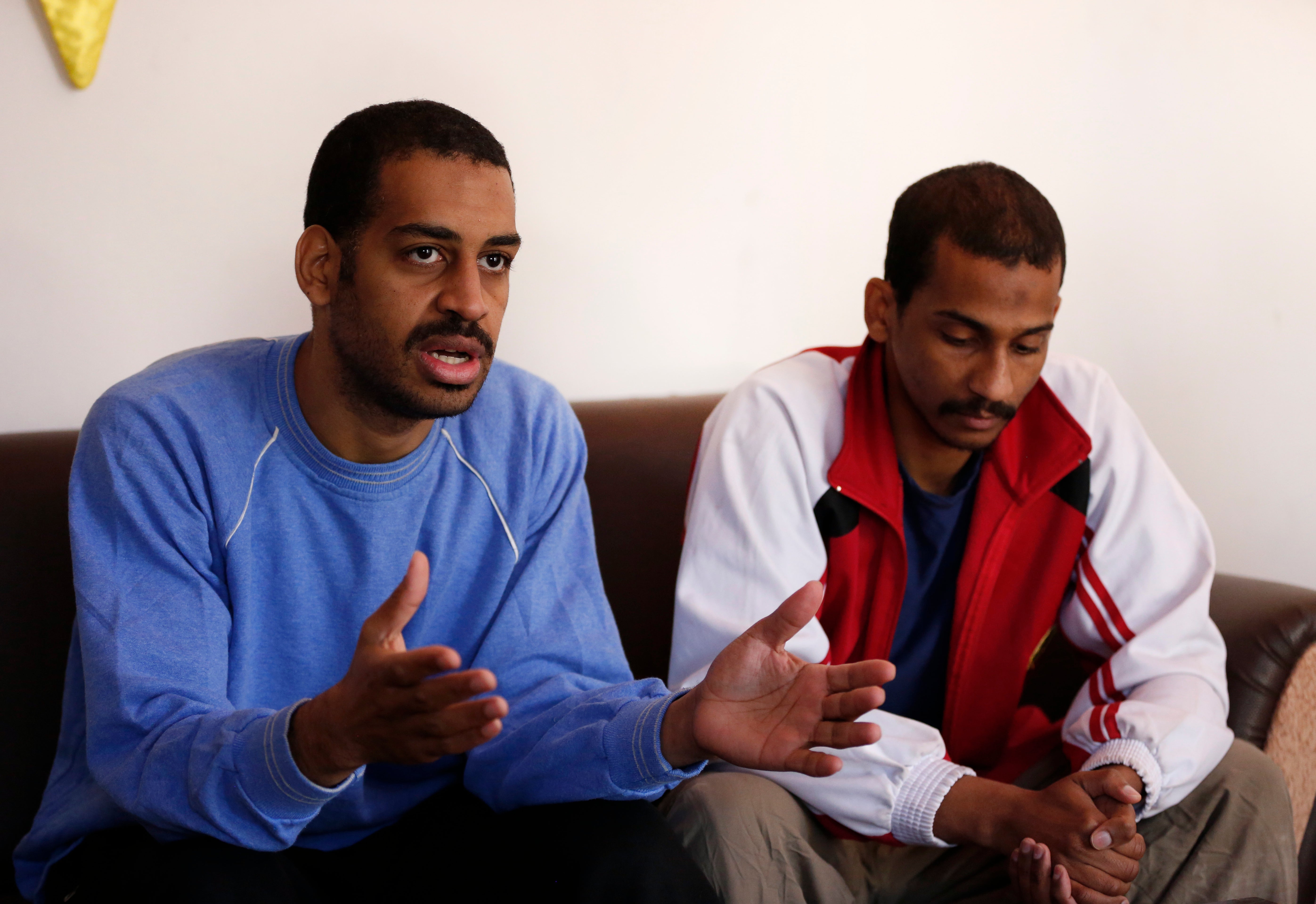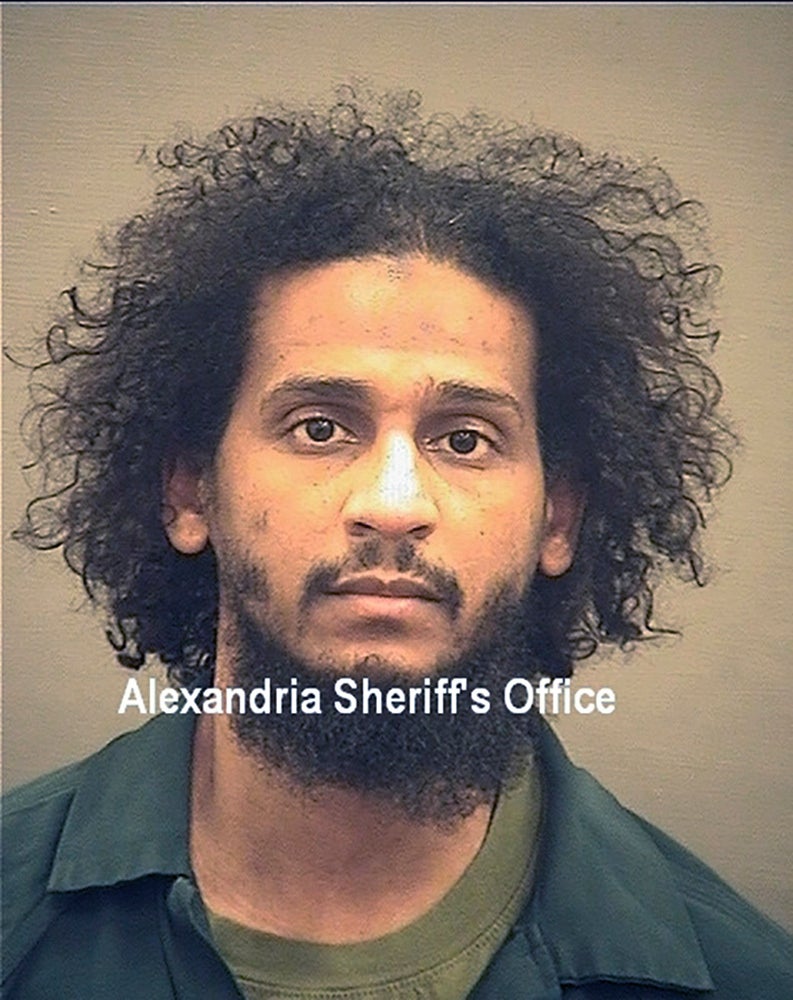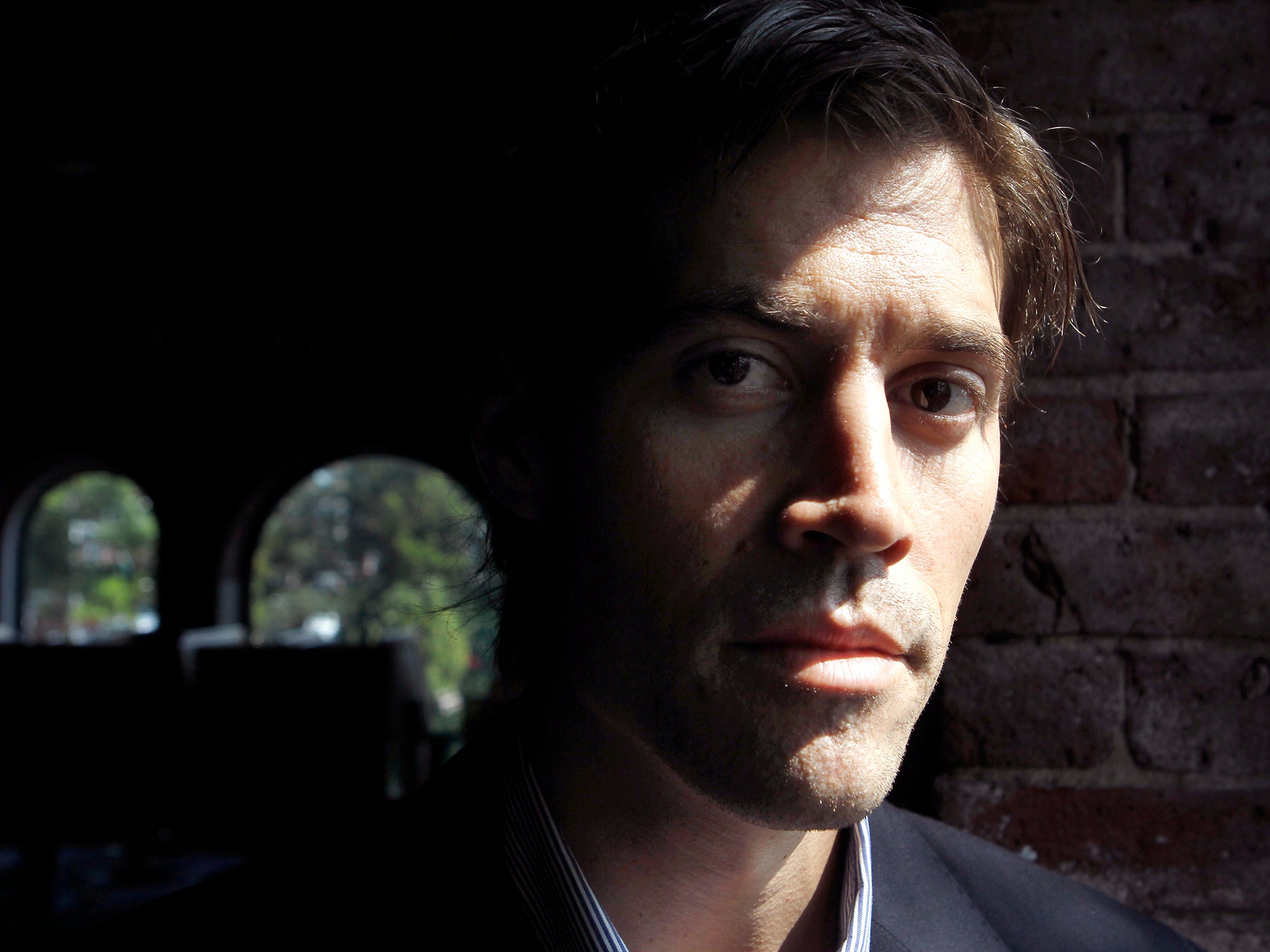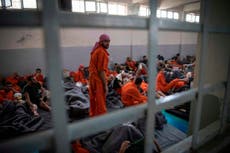Isis on trial: Families of victims hope for justice as landmark case of Isis ‘Beatle’ begins in US court
El Shafee Elsheikh is accused of brutal treatment of hostages and of being involved in the deaths of journalists and aid workers, writes Richard Hall in Alexandria, Virginia

They were the public face of the most notorious terrorist organisation in modern history: four British citizens who left their homes to join Isis in Syria, where they were accused of kidnapping, torturing and ultimately murdering western hostages, all the while broadcasting their crimes to the world. “The Beatles”, as they were known, came to symbolise the group’s extreme brutality.
Now, for the first time, a member of the group is set to stand trial in a US courtroom. El Shafee Elsheikh, 33, will face a jury at a federal court in Alexandria, Virginia on charges of hostage-taking and conspiracy to murder.
The case is focused on his alleged role in the murder of four Americans: journalists James Foley and Steven Sotloff, and aid workers Kayla Mueller and Peter Kassig. The indictment also holds him responsible for the deaths of British aid workers David Haines, 44, and Alan Henning, 47.
Elsheikh is the most senior Isis figure to face the US justice system so far. His trial – perhaps the most significant terrorism trial of the decade – could provide an insight into the inner workings of the group, its crimes, and its secrets. It will also be an opportunity for the families of the victims to confront a man who transformed their lives forever.
Diane Foley, the mother of journalist James Foley, said accountability was “essential” in helping victims’ families heal.
“So often, hostage-takers are never held accountable,” she told The Independent ahead of the trial. “It’s taken a lot to bring these men here and I’m hoping that it’ll send a message. I know it’s only one step, but to me it’s a big step.”
She added: “A trial is a much more positive way to get accountability than a drone strike. Violence begets violence, in my opinion. This is fairer and more transparent.”
James Foley, “Jim” to his friends and family, was a former teacher turned freelance journalist who went to Syria to report on the effect of the war on civilians. He was kidnapped in November 2012 in northern Syria, and killed two years later.
His mother, who has been an active campaigner for the plight of hostages since his death, and started a foundation in his name, said the trial may also be an opportunity for lingering questions to be answered.
“I hope he’ll also point fingers at others who are culpable. I fear there are a lot of folks involved in the kidnapping, torture and ultimate death of the Americans and British, who are lurking who knows where – in Syria, or Germany, or wherever they might be.
“Some families, also, are really hoping that we might find the remains of loved ones,” she added.
Elsheikh was born in Sudan and grew up in Shepherd’s Bush, London. He went to Syria in 2012 with his friend Alexanda Kotey, where they joined a group affiliated with al-Qaeda. Later, the pair would swear allegiance to Isis and join up with fellow Brits Mohammed Emwazi and Aine Lesley Davis. The four would form the terror cell that became known as “The Beatles”, a nickname given to them by their hostages because of their British accents.
Emwazi was perhaps the most infamous of the group, and was thought to be the ringleader. Known as “Jihadi John”, he carried out the beheadings of Foley, Sotloff, and British citizens Haines and Henning – acts that Isis filmed and released in propaganda videos.

The four were accused of involvement in the kidnapping of at least 27 people in Syria between 2012 and 2015, most of them westerners. The US justice department said that Elsheikh, Kotey and Emwazi had supervised detention facilities where hostages were held, where they had engaged in a “prolonged pattern of physical and psychological violence” against captives.
Former hostages who escaped or were released testified to the brutality of their captors.
French journalist Didier Francois, who was held by Isis for 10 months until his release in 2014, once described Elsheikh as “an absolute psychopath”. He told French radio station Europe 1 that “The Beatles” were “our most violent guards, keen on systematic torture and partial to techniques such as drowning and suffocation, but not only. They also loved mock executions and crucifixions.”
According to the US state department, Elsheikh “earned a reputation for waterboarding, mock executions, and crucifixions while serving as an Isis jailer”.
Elsheikh is also charged with coordinating the ransom negotiations for the western hostages by email.
The Obama administration launched at least one operation to rescue American hostages held by Isis, but was ultimately unsuccessful. Some European hostages were released after their governments paid ransoms, but both the US and UK governments have a long-standing policy of not paying ransoms to terrorist groups.
A massive US-led military operation slowly eroded the Isis caliphate’s territory from 2015 onwards. The last Isis territory was captured in March 2019, bringing the group’s goal of building a physical caliphate in Iraq and Syria to an end.
Elsheikh and Kotey were captured by the Kurdish-led Syrian Democratic Forces (SDF) in 2018 as they fled the former Isis capital of Raqqa dressed as civilians. They were held in Syria until October 2020, when they were eventually taken to the US to stand trial. Kotey pleaded guilty in September 2021 to the murders of Foley, Sotloff, Mueller and Kassig, and is due to be sentenced next month.
Emwazi was killed in a drone strike in 2015. Aine Lesley Davis, the fourth member of the group, was convicted in Turkey on terrorism charges and jailed for seven and half years in 2017.
The trial of Elsheikh will take place in Alexandria, Virginia, near Washington DC. Among the witnesses set to testify are a number of former captives of the group, including a Yazidi woman who was kidnapped by Isis and held with Kayla Mueller, and Nicolas Henin, a French journalist held for nearly 10 months by Isis in 2013 and 2014. The court will also hear via video link from Kurdish guards who held Kotey and Elsheikh in Syria.
In addition, the court will hear evidence from Elsheikh himself in the form of interviews he gave to journalists while he was held in SDF custody in Syria. In a number of combative interviews with western journalists, Elsheikh admitted to being part of negotiations with hostages’ families, while showing little remorse for his actions.
That the trial is taking place at all is the result of an almost unprecedented level of cooperation and negotiation between the US justice department and the British government, as well as UK intelligence.

After stripping Elsheikh and Kotey of their citizenship, the UK Home Office agreed to share a trove of intelligence gathered by Scotland Yard on the pair, in return for an assurance from the US Department of Justice that it would drop the death penalty in their case.
Ms Foley said that despite the years of heartache she has endured, she has focused her energy on trying to force something positive from the experience. As well as campaigning on behalf of hostages, the James W Foley Legacy Foundation promotes journalist safety, providing training and access to insurance and information.
“Jim was very positive. He was a very optimistic guy. He always looked for the good, he always looked for the silver lining, and it’s really a way we can keep his spirit alive,” she said.
“He aspired to be a man of moral courage, and we can try to do the same and inspire people to do the right thing in the face of a lot of bad things in the world. Jim would have wanted something positive to come of this.”


